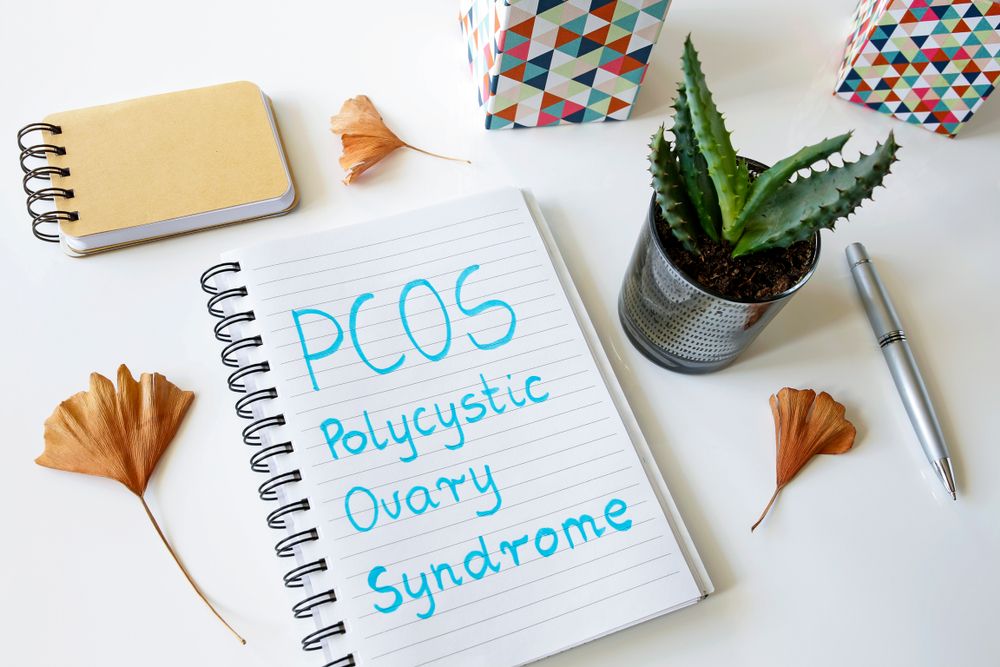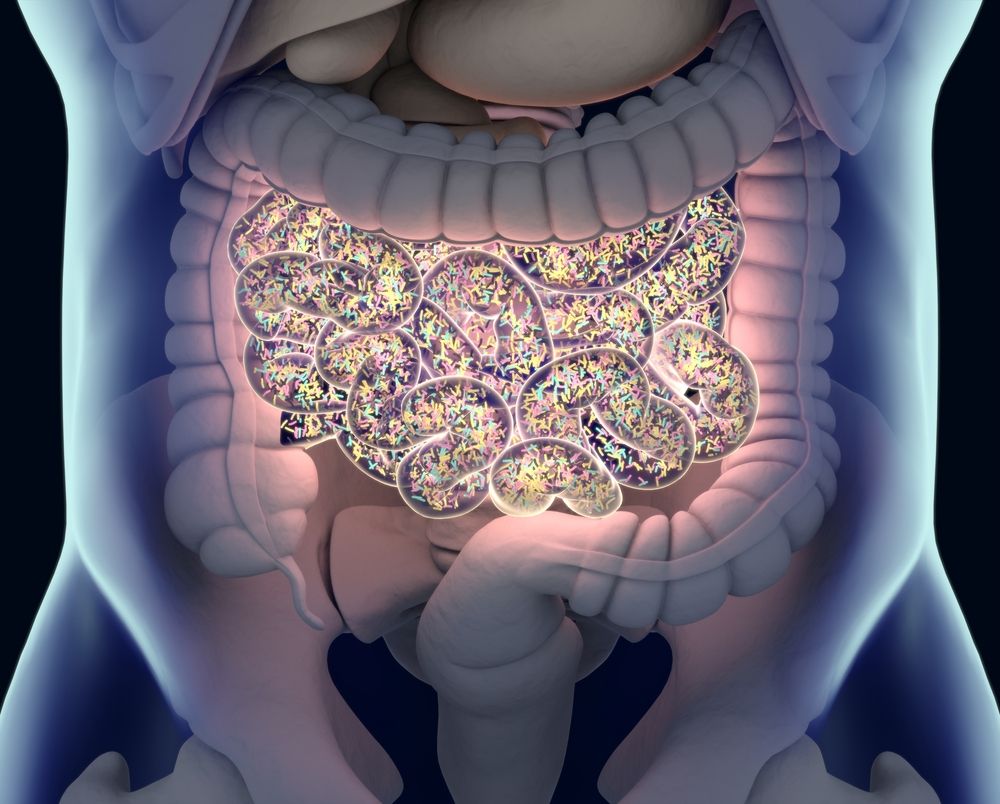Polycystic ovary syndrome (PCOS) is associated with irregular menstrual cycles and other symptoms. (Learn More) The cause of PCOS is not fully understood, but there are some hypotheses regarding what contributes to it. (Learn More)
Due to significant disruption of hormones, there can be numerous symptoms. (Learn More) Treatment is generally aimed at regulating hormonal imbalances. (Learn More)
A common symptom of the disorder is weight gain. (Learn More) Weight loss can improve your situation if you have PCOS. (Learn More)
Medications that are normally used to address diabetes are sometimes prescribed to those with PCOS. (Learn More) Birth control pills (Learn More) and medications to control male hormones (Learn More) are also sometimes used to assist with weight loss.
In addition to medications, you will need to adjust your lifestyle to lose weight. (Learn More)
Polycystic Ovary Syndrome
Polycystic ovary syndrome (PCOS) is a condition in women that causes irregular menstrual cycles due to monthly ovulation not occurring. Most women affected with PCOS are obese or overweight, though not all of them are. Medications to treat insulin resistance may be effective in helping with weight loss.
Women with PCOS are also at risk for developing other conditions like obstructive sleep apnea and diabetes. Male hormones (androgens) are also elevated in women with PCOS.
What Causes PCOS?
The cause of PCOS is not fully recognized. It is hypothesized that women with the syndrome have abnormal levels of luteinizing hormone (LH), a hormone involved in ovulation and menstruation in females. This occurs in conjunction with high levels of androgens, interfering with normal functioning of the ovaries.
What Are the Symptoms of PCOS?
PCOS is associated with many potential symptoms that often include some or all of the following:
- Obesity and/or weight gain
- Insulin resistance, a condition that occurs when the body abnormally responds to insulin levels and there are elevated levels of glucose in the blood
- Diabetes due to insulin resistance or some of the symptoms of diabetes
- Acne
- Increases in facial hair or other hair on the body due to high levels of androgens
- Thinning hair or male pattern baldness
- Cognitive problems, such as fatigue and difficulty concentrating or with memory
- Mood swings, including potential clinically significant anxiety or depressive symptoms
- Insomnia
- Sleep apnea
- Headaches
- Cardiovascular issues
- Irregular periods, heavy or painful periods, or a lack of menstruation
- Infertility
The symptoms can vary in their severity, depending on the case. They may be mild and cause little distress, or they can be very severe and extremely disruptive.
Treatment for PCOS
The most commonly used treatment for PCOS is to use oral contraceptives combined with the hormones progestin and estrogen to regulate the menstrual cycle, balance hormone levels in the body, and prevent further complications.
Other symptoms that occur as a result of the disorder can be treated directly, including weight gain and/or obesity.
Why Does PCOS Lead to Weight Gain?
PCOS results in difficulty with the body’s ability to use insulin, a hormone that helps to convert sugars and starch from the food you eat into energy for your body. Insulin resistance can cause a buildup of glucose (sugar) in your bloodstream, which leads to an increase of androgens.
Weight gain is triggered by the increase in androgens along with some other symptoms, such as increased body hair growth, an increase in acne, and the irregular menstrual cycles that occur in the disorder. The development of insulin resistance increases the risk for you to develop diabetes, high blood pressure, high cholesterol, sleep apnea, and even endometrial cancer.
Weight gain may also exacerbate the symptoms of the disorder, such as the menstrual irregularities you may experience.
Losing Weight Is Important
In addition to using medications to treat PCOS, weight loss programs can help you to manage many of the other symptoms associated with your disorder.
In general, weight loss is typically managed as it is in other women by using a combination of diet and exercise. In extreme cases, weight loss surgery may be an option.
There are also some medications that are typically used to help with weight loss in women who are diagnosed with PCOS.
Medications to Treat Diabetes Symptoms May Help
Glucophage (metformin) is a medication that helps to combat insulin resistance and treats type II diabetes. Research suggests that it can be useful in weight loss if you have PCOS, even though it is not a weight loss drug.
Other drugs used to treat diabetes may also help to reduce your weight, such as Saxenda (liraglutide).
Research indicates that these drugs are effective in helping women affected with PCOS to lose weight if they are used separately or in conjunction with one another. By allowing your body to become more effective in using insulin, your glucose levels drop, and your tendency to gain weight decreases. The medication also helps you lose any weight you have gained.
Birth Control Pills
Birth control pills that contain a combination of estrogen and progestin (a synthetic form of the hormone progesterone) can regulate some of the hormonal imbalances that are associated with PCOS, leading to potential weight loss. They adjust your estrogen levels and decrease androgen levels.
But not all women with PCOS can use combination birth control pills because there may be an increased risk of diabetes, cardiovascular problems, and even weight gain for some women who take these medications.
Medications to Curb Levels of Androgens
Another group of medications that may be used to help you lose weight if you have PCOS are drugs that decrease androgen levels in your system. When androgen levels are decreased, the symptoms associated with excess androgens in your body, such as weight gain and superfluous body hair, may be better controlled.
The most common medication in this group that is used to control weight for women with PCOS is Aldactone (spironolactone).
Lifestyle Changes
Besides medications, making changes in your habits can help you lose weight if you have PCOS.
- Eat smaller meals more frequently. As opposed to eating three larger meals a day, this can help to control blood sugar levels and assist with weight loss.
- Maintain a low-sugar and high-fiber diet that includes a lot of vegetables, fruits, and grains. Limits carbohydrates, processed foods, and fatty foods. This can reduce blood glucose levels, which can help you to lose weight.
- Develop a regular program of exercise to regulate your weight. Check with your physician before you start any exercise program. Make sure the exercise is moderate and takes at least 30 minutes a day.
- Reduce or eliminate other bad habits, such as smoking, alcohol use, and so forth.
- Continue to have your physician monitor your cholesterol and other stats, such as blood sugar levels. This will help to keep these in check.
References
Polycystic Ovary Syndrome (PCOS). (2017). Johns Hopkins Medicine.
What Is Polycystic Ovary Syndrome? (January 2018). Medical News Today.
Polycystic Ovary Syndrome (PCOS). (August 2017). Mayo Clinic.
Pharmacologic Therapy to Induce Weight Loss in Women Who Have Obesity/Overweight With Polycystic Ovary Syndrome: A Systematic Review and Network Meta‐Analysis. (October 2018). Obesity Reviews.
What Are the Best Birth Control Pills for PCOS? (November 2017). Medical News Daily.
PCOS Treatments. (2017). Johns Hopkins Medicine.











